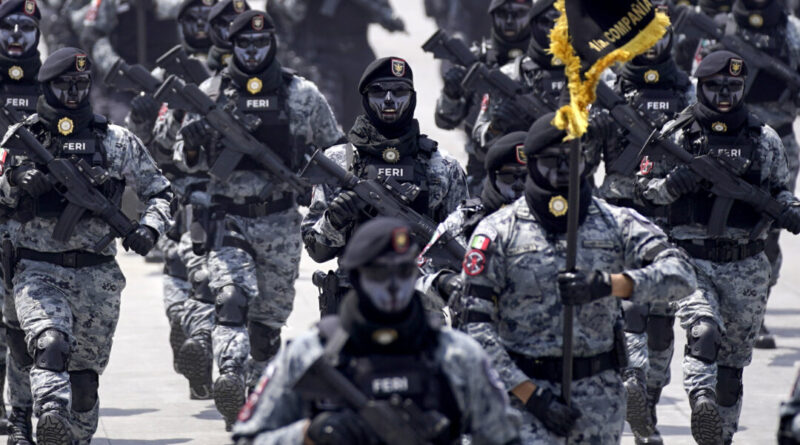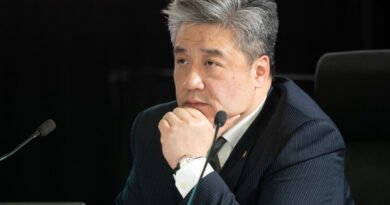Mexican Senate Approves Proposal to Place National Guard Under Military Oversight
Opposition senator Luis Donaldo Colosio expressed concerns that the approval of a constitutional reform by Mexico’s Senate would ‘normalize’ the idea that only the military could restore peace and law and order in the country.
Mexico’s National Guard will now be under the command of the armed forces after the constitutional reform, which was championed by outgoing President Andrés Manuel López Obrador, was passed.
Critics argue that this reform would grant excessive power to the military in managing law and order in Mexico.
Luis Donaldo Colosio, a senator from the opposition Citizens’ Movement party, shared his worries that the reforms could create a perception that only the military can achieve peace and lawfulness in Mexico.
‘Not The Peace Of Justice’
Colosio emphasized, “It is not the peace of justice.”
Colosio’s father, Luis Donaldo Colosio Murrieta, was tragically assassinated during an election rally in Tijuana in 1994, a tragic incident shrouded in mystery and conspiracy theories.
The civilian-led National Guard was established in 2019, absorbing units of the federal, naval, and military police.
Unlike the United States, the Mexican National Guard is not a state-based army reserve and has primarily enforced immigration policies, especially along the Guatemala border.
President López Obrador has entrusted several civilian-led areas to the military during his tenure, including customs duties and airport operations.
Previously, López Obrador had attempted to place the National Guard under military control; however, this was challenged by Mexico’s Supreme Court, leading to the constitutional reform.
Following a lengthy debate, the ruling Morena party and its coalition allies managed to pass the constitutional reforms for the National Guard, despite opposition based on concerns raised by human rights organizations and the United Nations.
Morena denies that the reform will militarize Mexico, instead asserting that it will enhance the effectiveness of the National Guard as a security force.
In a Wednesday vote, the Senate approved the constitutional reforms for the National Guard with 86 votes to 42, just meeting the required two-thirds majority.
Additionally, the lower house of Congress, which is dominated by López Obrador’s Morena party, also endorsed the measure.
This vote marked another significant victory for López Obrador, who is due to hand over power to Claudia Sheinbaum in January.
Controversial Judicial Reforms
On Sept. 11, the Senate passed controversial judicial reforms that would subject 7,000 judges to public voting.
Francisca Pou Giménez, a senior researcher at the National Autonomous University of Mexico, expressed concerns that these reforms could lead Mexico down a path similar to Venezuela, where the judiciary is “subordinated” to the ruling party, causing lasting harm to democracy.
López Obrador faced challenges in securing the necessary votes until Miguel Ángel Yunes Márquez, a senator from the National Action Party (PAN), was replaced by his father, Miguel Ángel Yunes Linares, a former PAN governor who voted in favor of the reforms.
In another vote, Yunes Linares once again sided with the ruling Morena-led coalition.
Concerns about police corruption have prompted an increased role for the Mexican military in combating drug cartels, with the naval special forces playing a pivotal role in the capture of Sinaloa cartel leader Joaquin Guzman in 2016.
Associated Press and Reuters contributed to this report.



